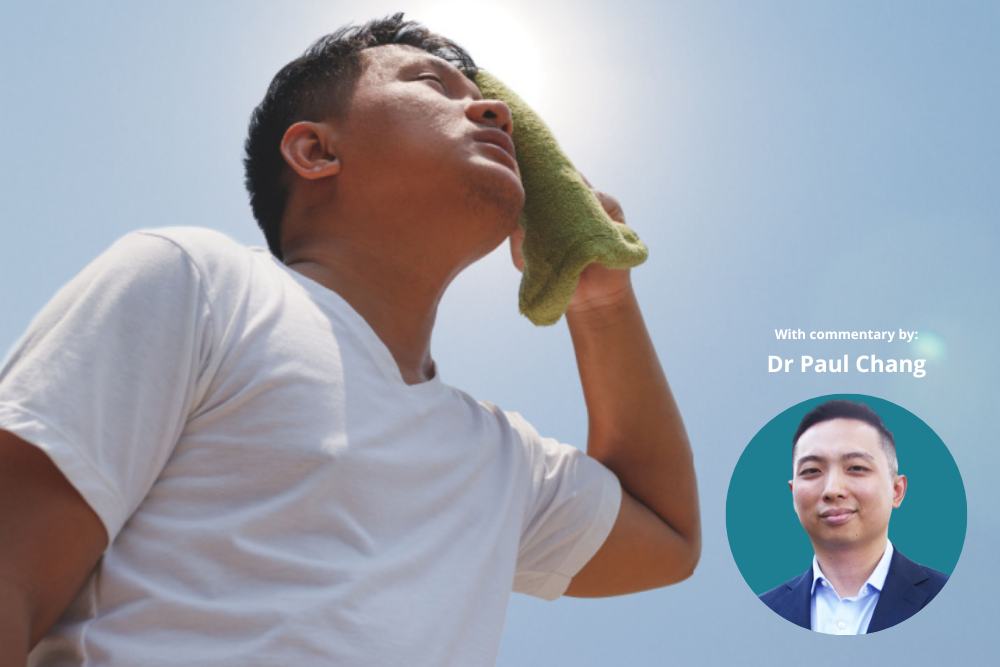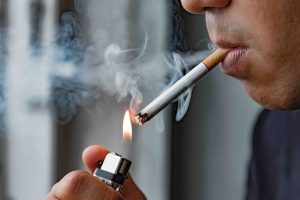In the heat of the Asian summer, a business trip can turn into a medical emergency. This was the stark reality for an unnamed 42-year-old Singaporean man who recently undertook a business trip to Hanoi, Vietnam.
Between the 5th and 8th of July, during a heatwave where temperatures soared up to a searing 39 degrees Celsius and a heat index, or “feels like” temperature, of 47 degrees, our subject was in constant motion. He wore a blazer, shirt and trousers, frequently travelling from air-conditioned hotels to external venues.
Although there were no signs of distress during this period, things changed drastically after his return to Singapore.
The Delayed Onset of Symptoms
On the 9th of July, the man started experiencing splitting headaches, nausea, and lethargy. He had no desire for food or drink, which he attributed to travel exhaustion. However, his condition didn’t improve even after a full night of sleep and paracetamol.
Deciding to seek medical advice, he visited his family doctor on the 10th of July, where he relayed his symptoms. After a routine blood pressure and temperature test, the doctor diagnosed him with a severe case of delayed heat exhaustion and dehydration. Fortunately, it was not a heat stroke, a more serious condition that can be life-threatening.
Taking Action
Following the doctor’s advice, the man consumed isotonic drinks and rested in a cool room. However, he later experienced a sudden urge to vomit while driving. Thankfully, there were no cars behind so he hastily pulled into the road shoulder. After pulling over and throwing up significantly, his dizziness subsided.
Heat Injury and its Prevalence: Dr Paul Chang’s Take
Dr Paul Chang, Deputy Medical Director at Regis Medical in Singapore, shared his perspective. He stated, “The actual incidence and prevalence may be underestimated in general. In Singapore, majority of the data comes from Singapore Armed Forces (SAF) Data. The last retrospective study showed 5 cases per 10,000 training population, and has decreased over the years due to effective strategies implemented by SAF.” He also added that other populations notably at-risk would be construction workers and labourers.
Dr Chang clarified that heatstroke manifests itself as a systemic condition and has certain cardinal features that make it more serious than a milder heat injury. That would be a core body temperature of above 40 degrees celsius, symptoms of central nervous system dysfunction, and systemic involvement (potentially heart, liver, kidney, blood cell damage).
He emphasised that tourists should actively avoid heat stress, stay hydrated, take breaks, and wear lightweight clothing. Noting that heatstroke can be both exertional and passive, he advised extra caution for vulnerable individuals like the elderly, young children, pregnant women, and those with chronic illnesses.
If someone is experiencing heatstroke symptoms, immediate medical evaluation is crucial. The individual needs immediate cooling and swift hospital transfer for further management. He added, “If you notice your travel companion confused and not alert, in the context of exposure to warm temperatures, bring the person to seek medical attention.
Heatstroke can be exertional or passive. Patients who are elderly, young, pregnant women or with chronic illness are vulnerable to passive heat stress even without exertion as well.“
The Unusual Delayed Symptoms
Dr Chang holds extensive experience yet this case intrigued him. He has not previously encountered delayed heat injury symptoms. However, he stressed the importance of medical evaluation in instances of severe nausea, vomiting, and low energy, as these symptoms could also indicate food poisoning. Food poisoning with severe dehydration also warrants medical treatment and observation. He added, “The main differentiating factors would be the presence of diarrhoeal symptoms in food poisoning, and elevated core body temperature in heat injuries. Either way, a diarrhoeal illness that presents with severe nausea, vomiting and low energy, will also need medical evaluation and observation, because it might be associated with abnormal electrolyte levels in the blood and severe dehydration that may require the use of intravenous fluids to tide the patient over. “
This case serves as a poignant reminder that high temperatures can pose a serious health risk, especially for those unaccustomed to the heat. The importance of heat safety measures cannot be understated, particularly during Asia’s sweltering summer months.













